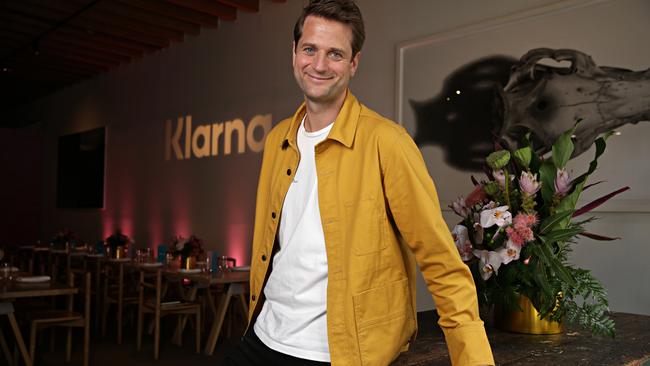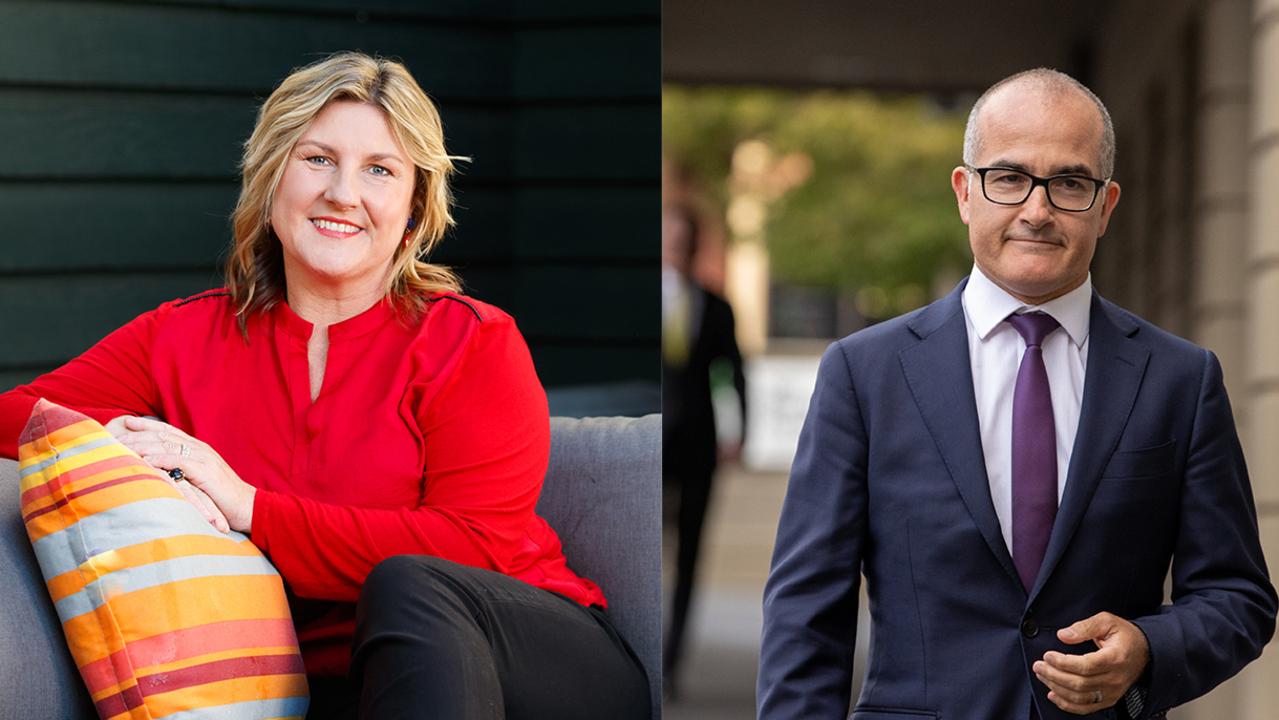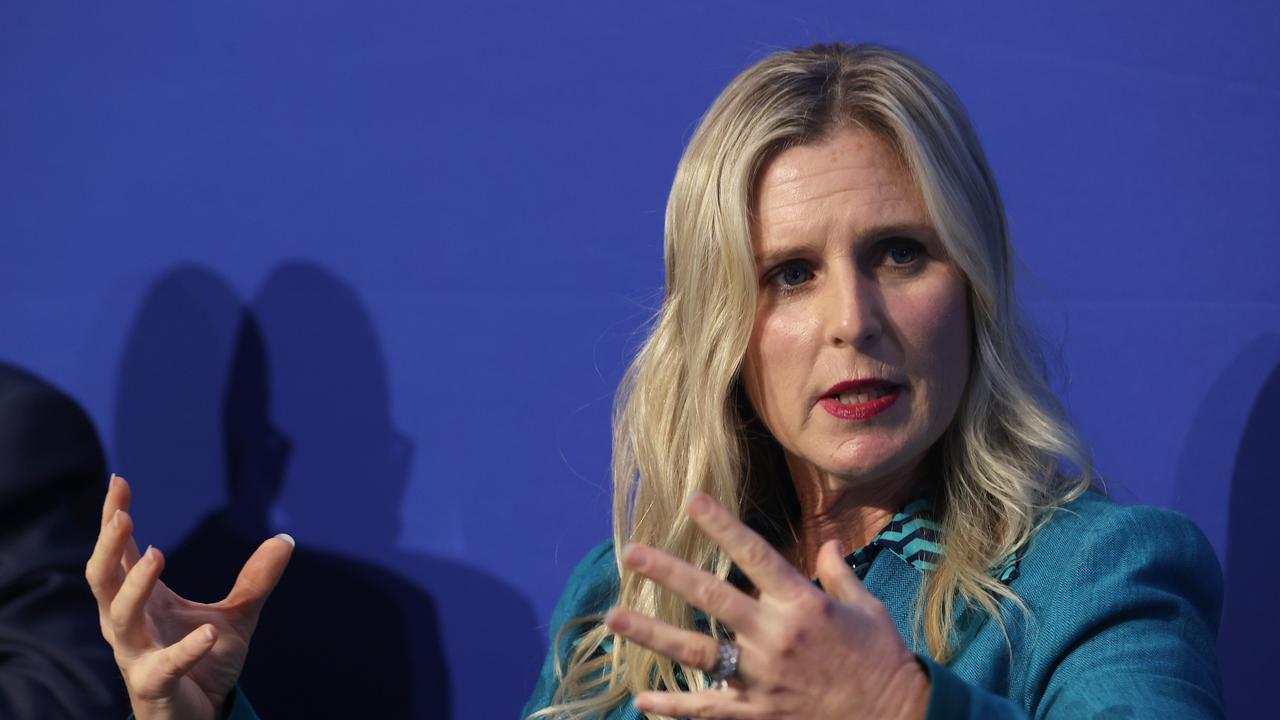Klarna hits out at Afterpay, Zip; labels retailer fees ‘extortion’
Klarna will also seek to leverage CBA’s 200,000 merchant terminals as part of its local push into 2021.

Klarna chief executive Sebastian Siemiatkowski has lashed out at the huge fees Australia’s buy now, pay later operators charge retailers, labelling them unsustainable and an “extortion scheme”.
Mr Siemiatkowski — also a co-founder of the global payments group — thinks regulators will eventually get more involved in Australia’s BNPL sector, in a similar fashion to the sweeping reforms of the nation’s credit card market in 2003.
Without naming rivals Afterpay and Zip, he highlighted average instalment payment merchant fees of 4.1 per cent, and took a thinly veiled swipe at the former over charges levied to retailers for its system.
“I’m kind of a little bit surprised that this isn’t a bigger topic in Australia … the largest player locally is charging 4.1 per cent on average in merchant fees. I mean that is not sustainable,” Mr Siemiatkowski said.
“That is what we would refer to as not really a payment scheme — that’s an extortion scheme, because you are charging that high on the merchant side and then you are using that to further incentivise your consumers.”
Sweden-headquartered Klarna — which is a broad payments group, including instalments, and has a banking licence — entered Australia early this year via a partnership with Commonwealth Bank, which holds a $US300m ($408m) stake in the $US5.5bn company.
So far, the partnership has 400,000 Australians signed up and 500 merchants integrated in its system. On Wednesday, Klarna is launching in-store and pay anywhere options and a Westfield partnership.
It comes amid fierce debate in this market about whether BNPL operators should face more regulation. A report by the corporate regulator this month found that wasn’t necessary, despite showing that one in five users missed payments in the 2019 financial year.
Mr Siemiatkowski reckons the fees some charge in the BNPL sector make it a target for intervention, in the same way that the central bank opened the market to credit card surcharging and capped interchange fees. Those fees are levied between banks when customers use cards for payments.
He said Klarna had engaged with the Reserve Bank of Australia on the topic.
“Independently of how strong a capitalist believer you are, most people would say some minimum amount of legal framework is necessary … I think it was a good thing that interchange regulation was imposed and I think there is a reason to consider that.”
As part of the RBA’s deep dive into the payments system, it is investigating whether changes should be imposed to allow surcharging by retailers to recoup BNPL costs.
The RBA’s analysis last year said fees paid by merchants to instalment providers ranged from 3-6 per cent and were typically higher than other electronic payment costs.
The RBA is yet to form a position. Its payment system review is happening at the same time the federal government has ordered a detailed report on the system’s regulatory architecture.
Mr Siemiatkowski said the average rate Klarna charged merchants globally was 2.1 per cent, but declined to specify the average for Australia because rates varied slightly in each market.
His view is that BNPL services are becoming commoditised and Klarna is better positioned to navigate the environment, because it offers other services including pay after delivery, a rewards program, digital receipts and price drop notifications.
“We believe long-term you should build a network that serves both the buyers and the sellers … it demands more creativity and more product development,” Mr Siemiatkowski said.
He shrugged off questions on the competitive landscape, saying Klarna’s launch in Australia was its “most successful” globally, helped by the CBA partnership.
Klarna will also seek to leverage CBA’s 200,000 merchant terminals as part of its local push into 2021.
But payments veteran Grant Halverson of McLean Roche Consulting said the competitive battle was intensifying in BNPL, as established global giants like PayPal pushed harder in the space.
“They (BNPL companies) are all feeling the pressure after stepping into the sunlight,” he added.
“There will be pushback from a lot of retailers.”
Citigroup analysts this week highlighted increasing competition as a top concern for Afterpay and Zip, given the potential profitability impact.
“While we see PayPal as the biggest threat, Affirm is also increasing its focus on smaller ticket, higher frequency purchases (including the partnership with Shopify) and has indicated that it intends to step up investment in sales and marketing,” the analysts said.
The research said Klarna hit 11 million total customers since launching in the US, citing the company’s addition of one million customers in the US in the past three weeks. That compared to Afterpay adding about 900,000 active customers in the whole of the first quarter of fiscal 2021.







